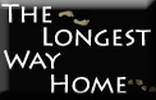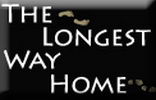SOPA/PIPA & the largest internet protest in history
On January 18th 2012 websites around the world united against a U.S.A. bill to censor the internet
On this page you will find out what SOPA/PIPA is, why the online world objected to it, and what people did to unite against it peacefully.
Was the protest a success or failure ...
» What's wrong with SOPA/PIPA?
» What's correct about SOPA/PIPA?
» What did people do to stop SOPA/PIPA?
» Did the SOPA/PIPA protests work?
» Common misconception with the term "Going Dark"
» List of travel blogs that protested against SOPA/PIPA
What is SOPA & PIPA
SOPA (Stop Online Piracy Act): A United States of America proposed bill that would allow the U.S. Department of Justice, along with copyright holders, to seek legal action against websites accused of enabling or facilitating copyright infringement
PIPA (Protect IP Act or Preventing Real Online Threats to Economic Creativity and Theft of Intellectual Property Act of 2011): A United States of America proposed law that would give the US government and also copyright holders additional tools found in SOPA to stop access to "rogue websites dedicated to infringing or counterfeit goods", with special attention marked for those registered outside the U.S.A.
What was wrong with SOPA & PIPA?
What was wrong with SOPA?: Critics of SOPA say that it violates the U.S. First Amendment of free speech. It is Internet censorship similar to The Great Firewall of China and as such would cripple the Internet. Freedom to report anonymously online, whistle-blowing, and reporting freely would be halted.
Online communities such as You Tube, Twitter, Facebook, forums or websites were someone can leave a comment could and would be held accountable for other people's actions such as comments or posting photos that violate copyright or censorship issues. Such websites could be taken offline without consent by such an act.
SOPA bypassed the 1998 Digital Millennium Copyright Act (DMCA) or "Safe Harbor" act that allows a website a certain amount of time to remove alleged copyright materials if they are publish on it.
Uploading copyright material would lead to a felony charge. Meaning if someone uploaded a video of a personal birthday party where people were singing a copyrighted song they could be charged with a felony offense for distributing copyrighted material.
Web browsers could be forced to install or uninstall software for monitoring browsing patterns by U.S. Governments Homeland Security Department
For further information on SOPA please see the Wikipedia article on SOPA.
A video to explain a little more:
What was wrong with PIPA?: Critics of PIPA say that should a website violate any laws it would allow the blocking its DNS (domain name server), which would make it appear the website would not exist.
Undertaking such a task within the U.S.A. would fracture the internet as countries outside its borders would still be maintaining such websites. There could then be potential routing problems to grind the internet to a virtual halt.
Hackers & those affected by such a law could easily go underground and develop a new systems or second internet to allow people to browse their sites thereby bypassing any U.S. laws.
The U.S. First Amendment would again be violated by not allowing people to have the reasonable opportunity to be heard or defend themselves from any accusations.
Online community websites would be extremely vulnerable to third party comments or uploads without due process to defend themselves.
What is correct about SOPA & PIPA?
Most people agree that stopping online piracy and copyright is important. Artists, designers, programmers etc,. have a right to their own works. Laws that protect them, and such works should exist.
SOPA & PIPA were set out to do this, however they were extremely badly thought out and written. Moreover the lawmakers in the U.S.A. post protest have admitted they did not have an in depth knowledge of the technicalities of such laws nor how the internet works.
What did people do to stop SOPA & PIPA?
Initially many large websites, IT industries and people publicly voiced their concerns that these acts were bring pushed too without proper consultation, fact finding, nor thought.
This continued with further accusations that U.S. senators were being urged by the powerful music and film corporations to get the acts / laws pushed through quickly. Further accusations surrounded the music and film industries generous donations to political movements.
On January 14th 2012 the White House publicly dropped it's support for SOPA/PIPA. A whitehouse spokesperson is quoted as saying "While we believe that online piracy by foreign websites is a serious problem that requires a serious legislative response, we will not support legislation that reduces freedom of expression, increases cyber security risk, or undermines the dynamic, innovative global Internet."
As the acts continued to be pushed through congress and the senate websites such as Wikipedia and Reddit opted to turn their sites off and display SOPA/PIPA information in protest on January 18th 2012, thus sparking the largest internet protest in history ...
Timeline of the January 18th 2012 online protests against SOPA & PIPA
Starting at 05:00 UTC on the 18th of January 2012 the world's sixth most visited website Wikipedia turned the English section of its website into a darkened protest page, thus preventing usage of its English site for 24 hours. This website, The Longest Way Home along with many others unified against SOPA/PIPA did the same.
Other websites around the world joined in by either putting up an informative SOPA/PIPA page with contact links to U.S. Congressmen / Senators to voice their concerns and objections. Other websites redirected their traffic to specific anti SOPA/PIPA sites.
Throughout the day more websites joined the protest from Google blanking out its name and adding a link to Reddit, Craigslist, Wired, WordPress, Mozilla (FireFox), Flickr, BoingBoing, O'Reilly, The Raw Story, Michael Moore along with tens of thousands of other websites by "Going Dark". Whilst leading social networks such as Twitter and Facebook made public statements in support of stopping SOPA and PIPA.
Did the SOPA / PIPA protests work?
Wikipedia reports that over 162 million people visited its darkened protest page on January 18th. With at least 4 million using the page to get contact information for congressmen.
A petition led by Google led to over 4.5 million people signing it.
During the day 18 senators withdrew support for SOPA/PIPA
Technology companies heralded the day as a significant unification that impacted change. Whilst others commended the millions of people who became educated on SOPA/PIPA and acted upon it.
Meanwhile mainstream media took a rather muted stand on the day. Some stating that it show's "how powerful cyber bullies can be"
The result: SOPA & PIPA are still there and still due before lawmakers in the U.S.A. However, previous majority support for them has been seriously cut.
House Speaker John Boehner said "lawmakers will continue to try to find support for it, but that it's not there now."
Laws are not simply stopped. They go up for revision if lawmakers don't support first drafts etc,. January 18th 2012 cut support for SOPA/PIPA dramatically. Moreover it brought international awareness to these acts and the civil liberties they would have jeopardized.
It also highlighted the increasingly uncomfortable world of political donors such as the music / film industry and the rising power of technology companies.
SOPA and PIPA are not dead. The January 18th 2012 protests worked to create awareness, educate, and remind people that they have the power to tell the lawmakers what they want.
SOPA, PIPA and their derivatives will continue to be push by many people for the foreseeable future. But for now those people know that they can't get away with rushing thorough badly written laws such as these.
A common misconception with the term "Going Dark"
During and post protests I've seen many within the mainstream media misinterpret the term "Going Dark".
Many people have mistakenly criticized websites for turning themselves "Off" by "Going Dark" during the SOPA/PIPA protests.
The term "Going Dark" did not mean turning a website off. It was a term used due to many of the protest pages having dark backgrounds or text to signify censorship, or the dulling of content due to censorship or being cut off by the laws they were protesting.
Sites such Wikipedia did block access to their content but they also did leave options open such as access to the mobile versions of their sites. Others only went "Dark" by blocking out their logos or darkening their images / text/ backgrounds.
What did I do in protest of SOPA & PIPA
I paid for additional internet and a place to give me steady access of electricity during the protests.
Starting at 5.00 UTC January 18th 2012 I turned off the Travel Blog section of this website along with all my posts / article and replaced them with an informative SOPA/PIPA page which included links for people to find more information about the global protest.
I also created a PIPA banner which appeared at the top of all the main pages on The Longest Way Home
At 14.00 UTC on January 18th 2012 all pages on The Longest Way Home had any text over 5 characters blacked out along with a top right hand corner "Censored" banner. Clicking on any blacked out text, or the banner brought up a page that urged people to find about more, or contact a US lawmaker.
During this time I was also active on Twitter. Sending out live tweets as both major and everyday websites went "Dark".
After 24 hours of protest The Longest Way Home resumed normal functioning again. And, I wrote up this page as permanent informative account of the events.
I petitioned the United States of America Government using this great tool from Americancensorship.org
A list of travel blogs that protested SOPA/PIPA
Here is a list I put together from Twitter & Facebook of travel bloggers / websites that went dark on the 18th of January 2012 in protest against SOPA/PIPA and to raise awareness.
Please note that some of these websites might have closed down. However, I am keeping the list as a history marker.
- Aarons WW adventures
- Adventurous Kate
- Captain and Clark
- Career Break Secrets
- City View UK
- Dangerous Business
- FotoArk
- Freelance Tourist
- Indie Travel Podcast
- Latin Abroad
- Legal Nomads
- Matador Network
- Nerds Eye View
- Never Ending Voyage
- Nomadic Chick
- The Longest Way Home
- The Travelers Way
- Trav Monkey
- Traveling with MJ
- Travelllll
- Travels of Adam
- Twenty Something Travel
- Virtual Wayfarer
- 5 x 5 Photo Mag
If I missed anyone out or if you'd like your site removed from this list, please leave a comment below or contact me.
Note: This list is restricted to travel blogs/sites. Secondly, to have your site put on this list and to prevent spam you'll have to show some proof of "going dark" on the 18th of January 2012 e.g. screen shot, dated tweet link, or another site that can back your claim up.
Lastly, all the above sites will automatically be put into my travel directory the next time it's updated. If you'd like your travel blog listed then please go directly to my travel blog directory and add your details there.


